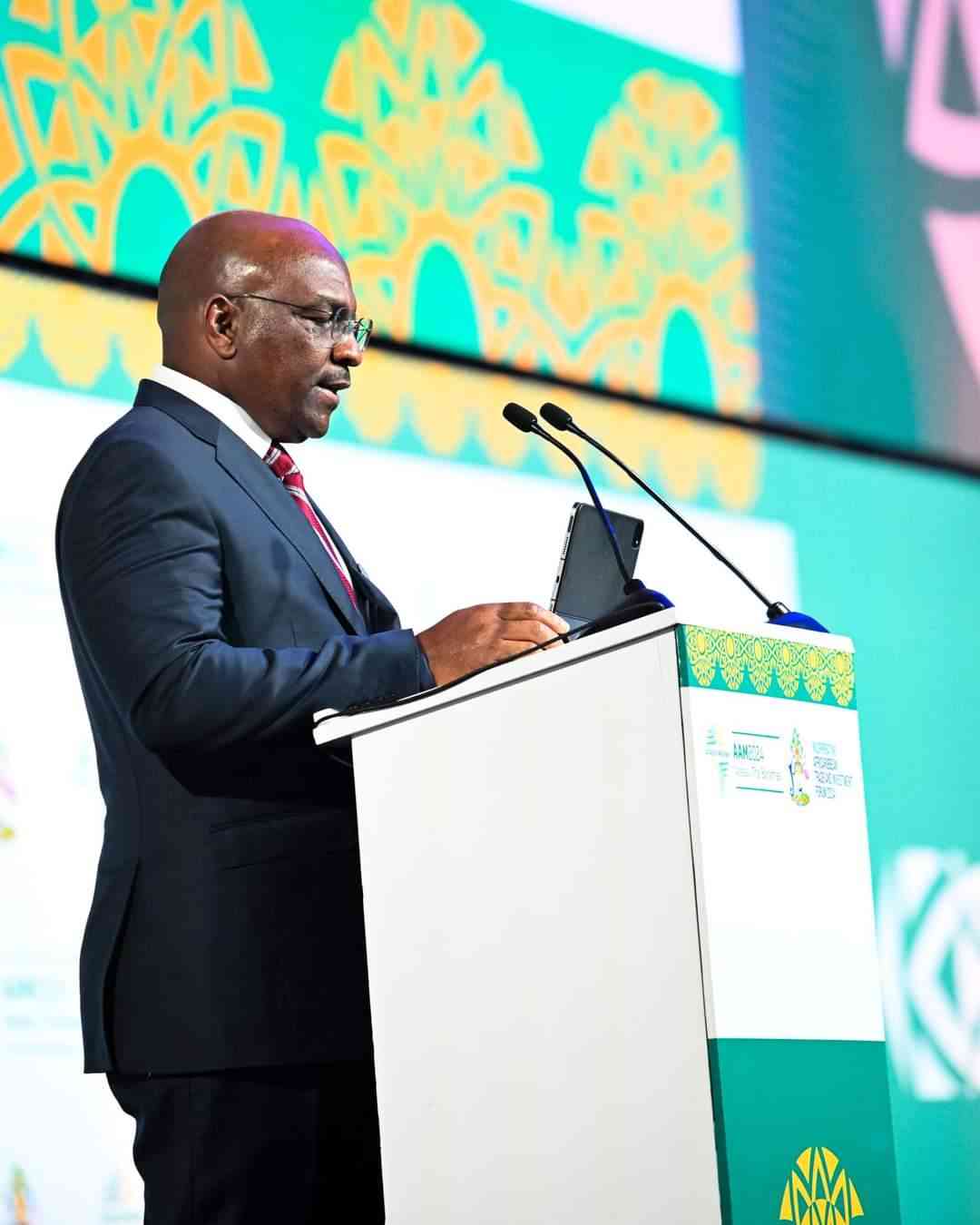
Africa needs strong financial institutions to act as a shock absorber amid a new world order characterised by geopolitical tensions and protectionism, Afreximbank senior vice-president Denys Denya said on Wednesday.
US President Donald Trump's reciprocal trade tariffs are sending economies into a tailspin.
However, Denya says there is a way out of the crisis for the continent.
To him, Africa can leverage Afreximbank’s experience to chart a path for the future.
The continent has arrived at a point where it needs all hands on deck, harmonise our collective strength, being firm and resolute in our convictions in addressing our challenges and shaping our future, he said.
“This calls for strengthening African institutions, especially development finance institutions are critical for sustainable development, democratic governance, and improved livelihoods,” he said at the official opening of Afreximbank’s 32nd annual general meeting in Abuja, Nigeria.
He said in an era where there is a scarcity of funding for African entities, our home-grown institutions must be given all the support to solve our problems.
“We must focus on building strong, independent institutions, promoting good governance, and fostering regional cooperation. It is imperative to highlight that institutional strengthening also requires strong political support, so as not to undermine their creation,” he said.
- Letter from America: Is former president Donald Trump a hero or villain?
- Chidzivo, Tarakinyu clinch Kabag honours
- Letter from America: Is former president Donald Trump a hero or villain?
- The Fiddler: Is honesty the best policy?
Keep Reading
“Prudent policies and reforms, including macroeconomic management, structural reforms, and investments in key areas such as infrastructure and human capital across the continent, are crucial for fostering sustainable economic growth.”
Denya says the continent needs to scale up industrialisation to promote value addition to Africa’s exports.
While diversifying the continent’s export basket, efforts must also be directed at diversifying export destinations, he said.
“We must improve regional trade through the AfCFTA [African Continental Free Trade Area]. With intra-African trade hovering around 16%, the AfCFTA offers a unique opportunity to accelerate structural transformation of the continent’s economies by scaling up the manufacturing base.”
Africa’s share of world exports declined to 3,3% last year from 3,5% in 2009, according to the latest African Trade Report released on Wednesday.
Intra-African trade accounts for a paltry 14,4% of the region’s
formal trade – underscoring continued dependence on external demand and
exposure to commodity shocks, the report said.
Denya said there is a need to forge new trading partners and strategic alliances to leverage “our collective strengths, resources, and expertise for shared prosperity”.
“New partnerships and strategic alliances will contribute to enhancing access to new markets, offer competitive advantages, and increase innovation. Accordingly, South-South trade and investment promotion should be high on the agenda,” he said, adding that Afreximbank stands ready to support member States to advance their short- and medium-term goals.










